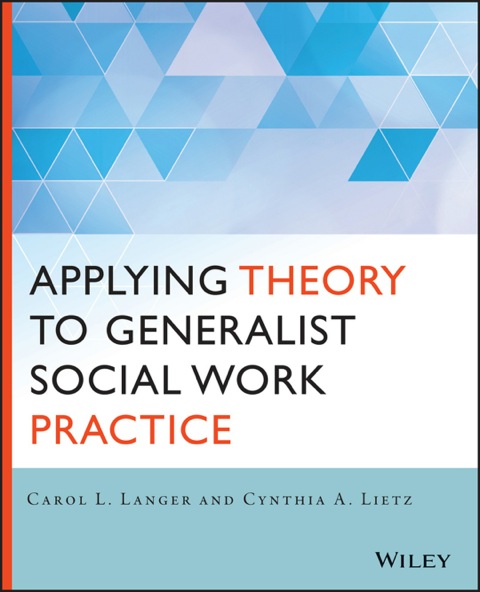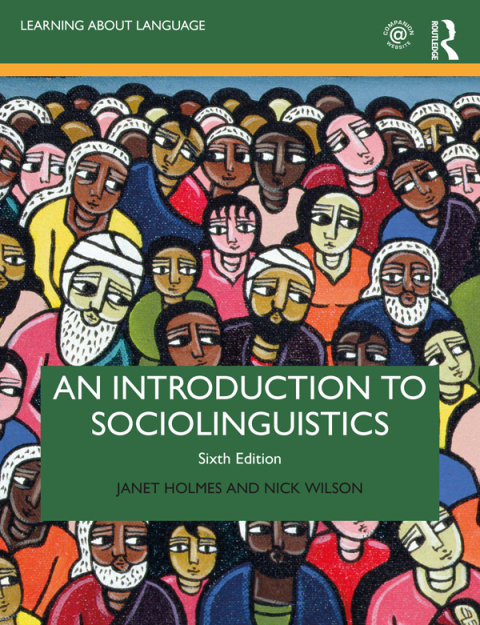Description
Efnisyfirlit
- Contents
- Introduction
- Chapter 1: The Role of Theories in Social Work Practice
- Introduction
- What Is Theory?
- The Relevance of Studying Theory for Aspiring Social Workers
- Case Example
- Evidence-Based Practice
- Further Debates
- Theoretical Integration
- The Expert Approach
- The Eclectic Approach
- Combining Two Theories
- Some Final Thoughts About Integration
- Common Elements
- Implementation of Theory: The Role of Microskills
- Conclusion
- Resources for Students
- References
- Chapter 2: Ecological and Systems Theories
- Introduction
- A Historical Discussion of Ecological and Systems Theories
- Key Concepts
- System
- Boundaries
- Reciprocal Transactions
- Feedback Loop
- Homeostasis
- Adaptation and Equifinality
- Microsystem
- Mesosystem
- Exosystem
- Macrosystem
- Chronosystem
- Theoretical Principles
- Principle 1: A System Consists of Interrelated and Interdependent Parts
- Principle 2: A System Is Defined by Its Boundaries and Rules
- Principle 3: A System Demonstrates Predictable Patterns of Behavior
- Principle 4: A System Is More Than the Sum of Its Parts
- Principle 5: Changing One Part of a System Affects the Other Parts of and the Whole System
- Principle 6: Goodness of Fit With the Environment Leads to Positive Growth and Adaptation
- Application of Ecological and Systems Theories Within Social Work Practice
- Engagement
- Assessment
- Goal Setting
- Intervention
- Termination
- Evaluation
- Case Example
- Case Example Discussion Questions
- Stories From the Field
- Student Application of Skills
- Strengths and Limitations of Ecological and Systems Theories
- Conclusion
- Resources for Students
- References
- Chapter 3: The Strengths Perspective
- Introduction
- A Social Work History Lesson
- Limitations of the Medical Model
- Moving Toward a Strengths Perspective
- Key Concepts
- Strengths
- Resilience
- Hope
- Cultural Identity
- Collaboration
- Theoretical Principles
- Principle 1: All People, Families, Groups, and Communities Have Strengths
- Principle 2: All People, Families, Groups, and Communities Have the Capacity for Growth and Improvem
- Principle 3: All People, Families, Groups, and Communities Are Experts in Their Lives
- Principle 4: Support and Services Should Be Provided in Naturally Occurring Settings Whenever Possib
- Principle 5: Services Should Remain Flexible and Responsive to the Unique Needs of Each Client Situa
- Principle 6: Human Relationships Are Highly Valued
- Application of the Strengths Perspective Within Social Work Practice
- Engagement
- Assessment
- Goal Setting
- Intervention
- Termination
- Evaluation
- Case Example
- Case Example Discussion Questions
- Stories From the Field
- Student Application of Skills
- Strengths and Limitations of the Strengths Perspective
- Conclusion
- Resources for Students
- References
- Chapter 4: The Task-Centered Model
- Introduction
- A Historical Discussion of the Task-Centered Model
- Theoretical Principles
- Principle 1: Problems Are a Part of the Human Experience
- Principle 2: Humans Seek to Relieve Distress Caused by Problems
- Principle 3: People Are Problem Solvers and Problem-Solving Increases Self-Efficacy
- Principle 4: The Task-Centered Model Can Be Integrated With Various Theoretical Perspectives
- Application of the Task-Centered Model Within Social Work Practice
- Initial Phases
- Middle Phase: Intervention
- Final Phase: Termination
- Case Example
- Engagement
- Assessment
- Goal Setting and Contracting
- Intervention
- Termination
- Evaluation
- Case Example Discussion Questions
- Stories From the Field
- Student Application of Skills
- Strengths and Limitations of the Task-Centered Model
- Conclusion
- Resources for Students
- References
- Chapter 5: Conflict Theory
- Introduction
- A Historical Discussion of Conflict Theory
- Dialectical Materialism
- Capitalism
- Other Theories
- Macro Practice Case Example
- Mezzo Practice Case Example
- Application of Conflict Theory Within Social Work Practice
- Engagement
- Assessment
- Goal Setting
- Intervention
- Termination
- Evaluation
- Case Example Discussion Questions
- Stories From the Field
- Student Application of Skills
- Strengths and Limitations of Conflict Theory
- Conclusion
- Resources for Students
- References
- Chapter 6: Humanism and Client-Centered Theory
- Introduction
- A Historical Discussion of Client-Centered Theory
- Key Concepts
- Incongruence and Congruence
- Unconditional Positive Regard
- Empathy
- Self-Actualization
- Theoretical Principles
- Principle 1: Personal and Social Problems Occur When People Are Devalued
- Principle 2: Change Happens in the Context of an Authentic Helping Relationship
- Principle 3: People Are Capable of Self-Actualization When the Conditions Allow Positive Growth and
- Stories From the Field
- Application of Client-Centered Theory Within Social Work Practice
- Engagement
- Assessment
- Goal Setting
- Intervention
- Termination
- Evaluation
- Case Example
- Case Example Discussion Questions
- Student Application of Skills
- Strengths and Limitations of Client-Centered Theory
- Conclusion
- Resources for Students
- References
- Chapter 7: Cognitive and Behavioral Theories
- Introduction
- A Historical Discussion of Behaviorism and Cognitive Theory
- Key Concepts
- Classical Conditioning
- Operant Conditioning
- Reinforcers
- Punishers
- Imitation
- Cognition
- Cognitive Restructuring
- Cognitive-Behavioral Therapy
- Application of CBT Within Social Work Practice
- Engagement
- Assessment
- Goal Setting
- Intervention
- Termination
- Evaluation
- Stories From the Field
- Case Example
- Case Example Discussion Questions
- Student Application of Skills
- Strengths and Limitations of Cognitive and Behavioral Theories
- Conclusion
- Resources for Students
- References
- Chapter 8: Empowerment Theory
- Introduction
- A Historical Discussion of Empowerment Theory
- Development of Empowerment in Social Work
- Theoretical Principles
- Principle 1: The Personal Is Political
- Principle 2: Marginalization Is Systematic
- Principle 3: Personal Psychosocial Transformation Can Lead to Social Change
- Principle 4: Empowerment Can Only Occur When People Are Treated With Dignity and Respect
- Principle 5: A Non-Hierarchical Model Fosters Change
- Principle 6: Empowerment Leads to Social Action
- Application of Empowerment Theory Within Social Work Practice
- Case Example
- Engagement
- Assessment
- Goal Setting
- Intervention
- Termination
- Evaluation
- Case Example Discussion Questions
- Stories From the Field
- Student Application of Skills
- Strengths and Limitations of Empowerment Theory
- Conclusion
- Resources for Students
- References
- Chapter 9: Narrative Theory
- Introduction
- A Historical Discussion of Narrative Theory
- Key Concepts
- Narrative
- Multistoried
- Social Construction
- Externalization
- Dominant Narrative
- Theoretical Principles
- Principle 1: People Communicate About Their Lives Through the Process of Storytelling
- Principle 2: The Process of Sharing a Story Allows the Storytellers to Attach Meaning to Their Exper
- Principle 3: Helping Clients Alter the Meaning They Attach to Experiences Can Be Helpful
- Principle 4: Externalization Helps Clients Understand Their Experiences in More Liberating Ways
- Application of Narrative Theory Within Social Work Practice
- Engagement
- Assessment
- Goal Setting
- Intervention
- Termination
- Evaluation
- Case Example
- Case Example Discussion Questions
- Stories From the Field
- Student Application of Skills
- Strengths and Limitations of Narrative Theory
- Conclusion
- Resources for Students
- References
- Chapter 10: Solution-Focused Brief Therapy
- Introduction
- A Historical Discussion of SFBT
- Theoretical Principles of SFBT
- Principle 1: Uniqueness of the Client Must Be Considered
- Principle 2: The Focus Is on Solutions, Not Problems
- Principle 3: People Possess Different Strengths
- Principle 4: Exceptions to the Problem Likely Exist
- Principle 5: The Intensity, Frequency, Duration, and Severity of the Distress Must Be Considered
- Principle 6: Focus Is on Systemic and Contextualized Experience and Solutions
- Principle 7: The Process Remains Future-Oriented
- Principle 8: The Who, Where, and What Help to Identify the Nature of the Distress
- Application of SFBT Within Social Work Practice
- Engagement
- Assessment
- Goal Setting
- Intervention
- Termination
- Evaluation
- Case Example
- Case Example Discussion Questions
- Stories From the Field
- Student Application of Skills
- Strengths and Limitations of SFBT
- Conclusion
- Resources for Students
- References
- Chapter 11: Crisis Theory
- Introduction
- A Historical Discussion of Crisis Theory
- Levels of Crisis
- Stages of Experiencing and Resolving a Crisis
- Case Example
- Case Example Discussion Questions
- The Critical Incident Stress Debriefing and Management Protocol
- Stories From the Field
- Student Application of Skills
- Strengths and Limitations of Crisis Theory
- Conclusion
- Resources for Students
- References
- Chapter 12: Feminist and Critical Theories
- Introduction
- Historical Foundation and Overview of Critical Theory
- Theoretical Principles of Critical Theory
- Historical Foundation and Overview of Feminist Theory
- Theoretical Principles of Feminist Theory
- Similarities and Differences
- Key Concepts
- Internalized Oppression and Symbolic Violence
- Consciousness Raising and Communicative Action
- Empowerment and Emancipation
- Principles of Feminist and Critical Theories Within Social Work Practice
- Application of Feminist and Critical Theories Within Social Work Practice
- Engagement
- Assessment
- Goal Setting
- Intervention
- Termination
- Evaluation
- Case Example
- Case Example Discussion Questions
- Stories From the Field
- Student Application of Skills
- Strengths and Limitations of Feminist and Critical Theory Approaches
- Conclusion
- Resources for Students
- References
- Chapter 13: Transtheoretical Model
- Introduction
- A Historical Discussion of TTM
- Key Concepts
- Transtheoretical
- Process
- Decisional Balance
- Relapse
- Processes of Change
- Theoretical Principles
- Principle 1: Behavior Change Is a Process
- Principle 2: Drawing From Multiple Theories Is the Best Approach When Seeking Behavior Change
- Principle 3: Processes of Change Are Used to Prompt Adjustments to Behavior
- Stages of Change
- Precontemplation
- Contemplation
- Preparation
- Action
- Maintenance
- Termination
- Motivational Interviewing
- Demonstrate Empathy
- Develop Discrepancy
- Expect and Accept Resistance
- Foster Self-Efficacy
- Application of TTM Within Social Work Practice
- Engagement
- Assessment
- Goal Setting
- Intervention
- Termination
- Evaluation
- Case Example
- Case Example Discussion Questions
- Stories From the Field
- Student Application of Skills
- Strengths and Limitations of TTM and Motivational Interviewing
- Conclusion
- Resources for Students
- References
- Chapter 14: Theory and Practice: Pulling It All Together
- Acknowledgments
- About the Authors
- Author Index
- Subject Index
- End User License Agreement






Reviews
There are no reviews yet.